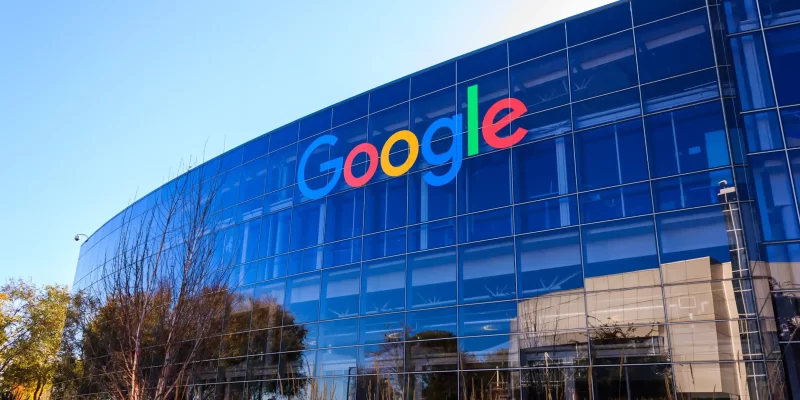Google: From a Stanford Project to the World’s Leading Search Engine By Texas Startup Insider
In 1996, two Stanford graduate students, Larry Page and Sergey Brin, set out on a mission to organize the world’s information and make it universally accessible and useful. What began as a research project in a garage turned into Google, the global tech giant that has transformed how we search, communicate, and interact with the internet.
Today, Google’s innovations touch nearly every aspect of modern life, from artificial intelligence and cloud computing to self-driving cars and healthcare. But its journey from startup to tech powerhouse is nothing short of extraordinary.
The Early Days at Stanford
Larry Page and Sergey Brin met at Stanford University in the mid-90s. Both were doctoral students with a shared interest in exploring how to improve the process of searching the internet. At the time, search engines were basic, offering results based primarily on keyword matches. Page and Brin believed there was a better way to rank search results: based on the relationships between websites.
In 1996, they developed Backrub, a search engine that used links to determine the importance of individual web pages. This innovation was a game-changer—by assessing the “backlinks” pointing to a webpage, Backrub could rank pages based on their relevance and authority.
In 1998, the duo renamed their project Google, a play on the mathematical term googol, which refers to the number 1 followed by 100 zeros, symbolizing their aim to organize an immense amount of information.
From Garage to Silicon Valley
With $100,000 in startup funding from investor Andy Bechtolsheim and a loan from Page’s parents, Google was officially founded in September 1998. The company’s first headquarters was a garage in Menlo Park, California, a common origin story for Silicon Valley tech companies.
Google’s search engine quickly gained traction, offering faster, more accurate search results than competitors like Yahoo and AltaVista. By 2000, Google was processing over 1 billion search queries a day, solidifying its place as the search engine of choice.
Turning Search Into Revenue
In 2000, Google introduced its AdWords program, which allowed businesses to advertise on the search engine. This marked a pivotal moment in Google’s evolution from a search engine to a comprehensive advertising platform. AdWords’ model was revolutionary because it offered pay-per-click (PPC) advertising, where advertisers only paid when users clicked on their ads, ensuring that businesses only paid for effective exposure.
This shift to monetizing search was highly successful, fueling Google’s rapid growth and allowing the company to reinvest in new projects.
The Growth of Google Products
As Google’s core business of search and advertising grew, so did its product offerings. By the mid-2000s, Google had expanded its reach into numerous fields:
Gmail (2004): Google’s email service became a game-changer, offering 1 GB of free storage when most competitors offered only 25 MB.
Google Maps (2005): The launch of Google Maps revolutionized navigation, giving users access to detailed, interactive maps and directions.
Android (2005): Google acquired Android Inc., setting the stage for the company’s dominance in mobile operating systems. Today, Android is the most widely used mobile OS in the world.
Becoming a Tech Giant
By the early 2010s, Google had grown beyond its initial search engine. The company entered new sectors such as:
Google Cloud: Competing with Amazon Web Services (AWS) and Microsoft Azure in the rapidly growing cloud computing space.
Google Drive (2012): Offering a cloud-based storage and collaboration platform.
Self-Driving Cars (2014): Google’s parent company, Alphabet, initiated the Waymo project, paving the way for autonomous vehicles.
Google in Texas: A Key Player
Texas has been a critical hub for Google’s growth. The state’s business-friendly environment, thriving tech scene, and large talent pool have made it an attractive location for Google’s expansion.
In Austin, Google established a significant office that focuses on engineering, sales, and operations, capitalizing on the city’s reputation as a major tech center. With tech companies flocking to Austin, Google has played a central role in the city’s emergence as a growing tech hub, contributing to the region’s innovation ecosystem.
Challenges and Controversies
Despite its success, Google has faced its share of challenges. Over the years, the company has been criticized for issues related to privacy, data collection, and its dominance in the digital advertising market. Google’s regulatory scrutiny in both the U.S. and Europe has led to numerous investigations into its business practices.
Additionally, as Google expanded into diverse industries, it faced competition from both established companies and new startups in fields ranging from artificial intelligence to hardware development.
Lessons for Texas Entrepreneurs
Google’s journey from a Stanford project to a global tech giant offers valuable lessons for startups in Texas:
Innovation and Focus: Google succeeded by solving a core problem—making search faster and more relevant.
Monetize Smartly: The company’s shift to advertising proved to be a sustainable revenue model.
Scale Thoughtfully: Google wisely diversified its offerings over time, leveraging its strong core business to expand into new areas.
The Future of Google
As of 2024, Google continues to lead in search, digital advertising, and cloud computing. The company is investing heavily in artificial intelligence, quantum computing, and other futuristic technologies that promise to reshape industries in the years to come. Google’s vision of organizing the world’s information is still central to its mission, but the scope of what that information encompasses continues to expand—encompassing everything from self-driving cars to smart cities.
For Texas entrepreneurs, Google’s journey serves as a powerful reminder that the key to success is both persistence and innovation. What started as a simple project at Stanford has now become an indomitable force driving technological progress.
What's your reaction?
Excited
0
Happy
0
In Love
0
Not Sure
0
Silly
0







